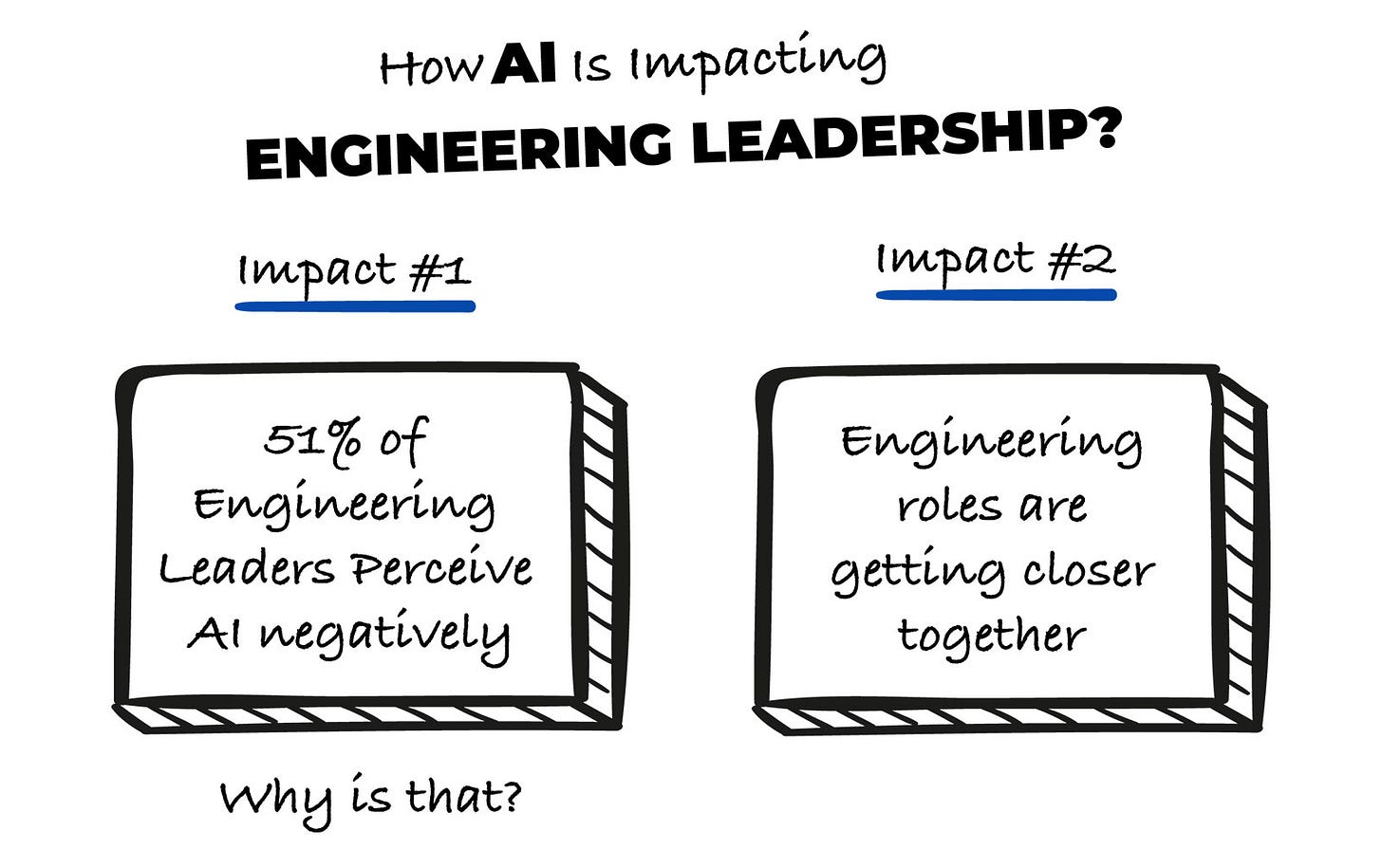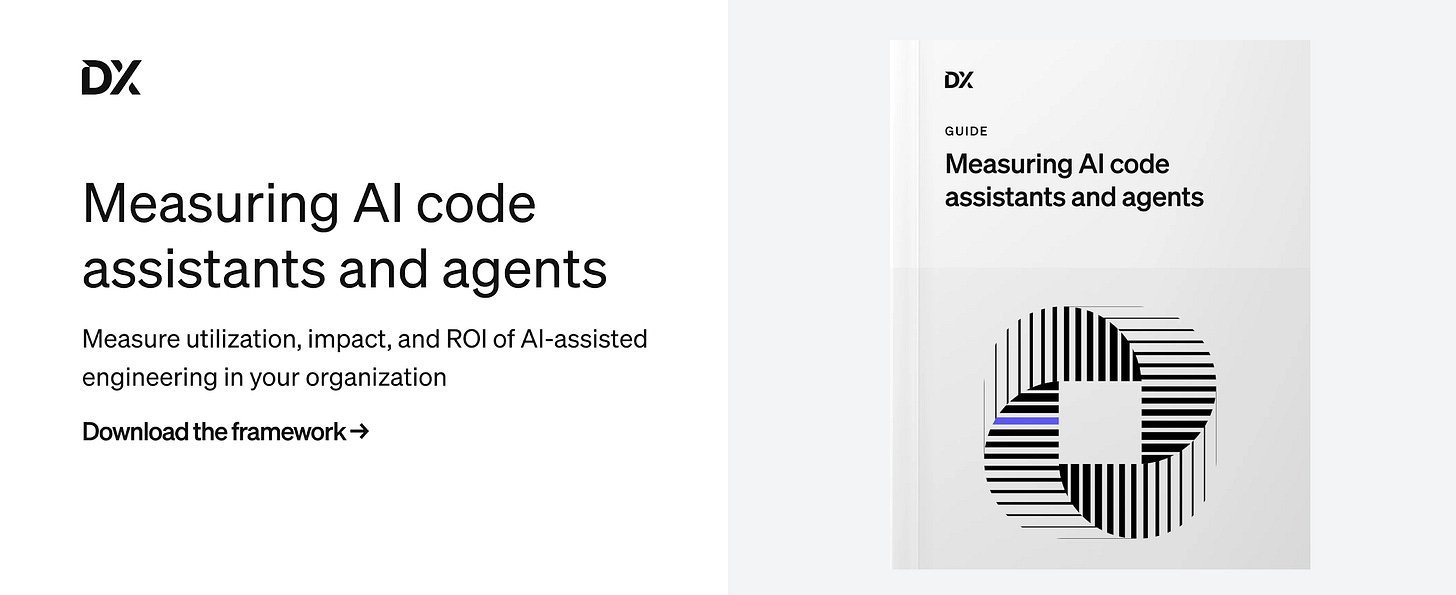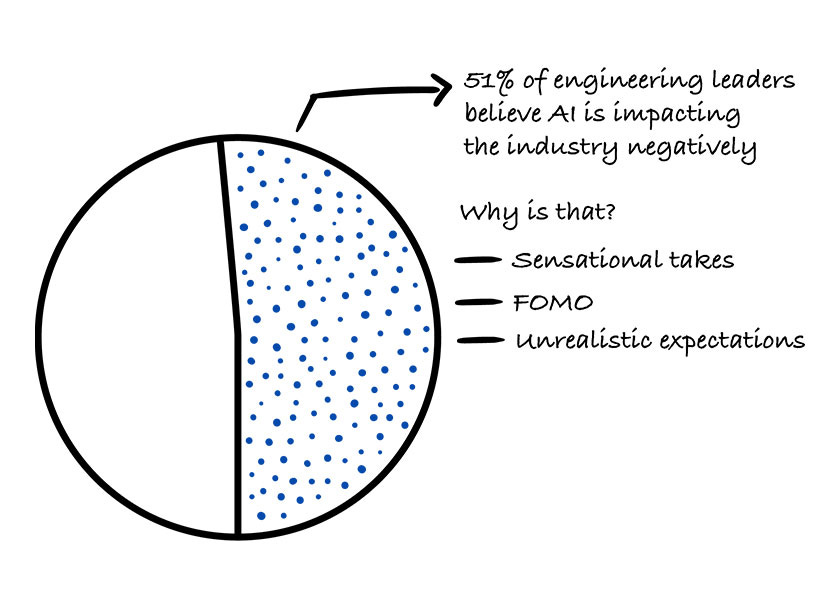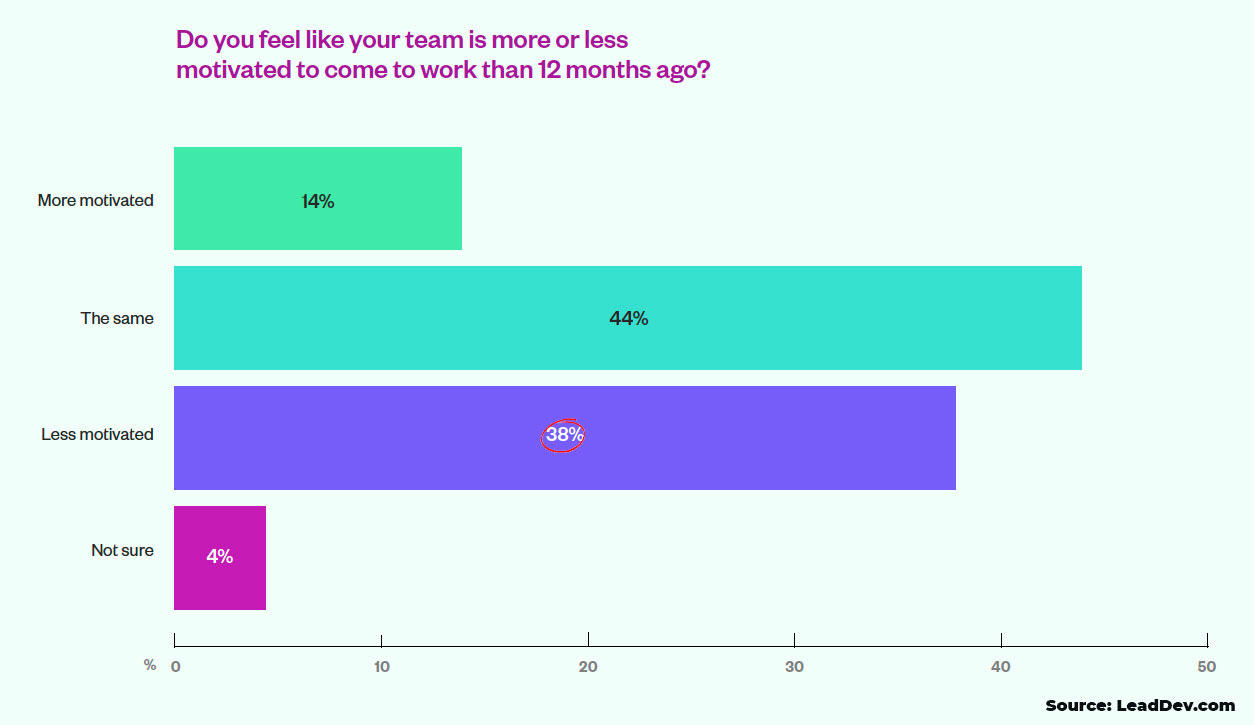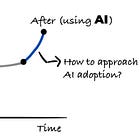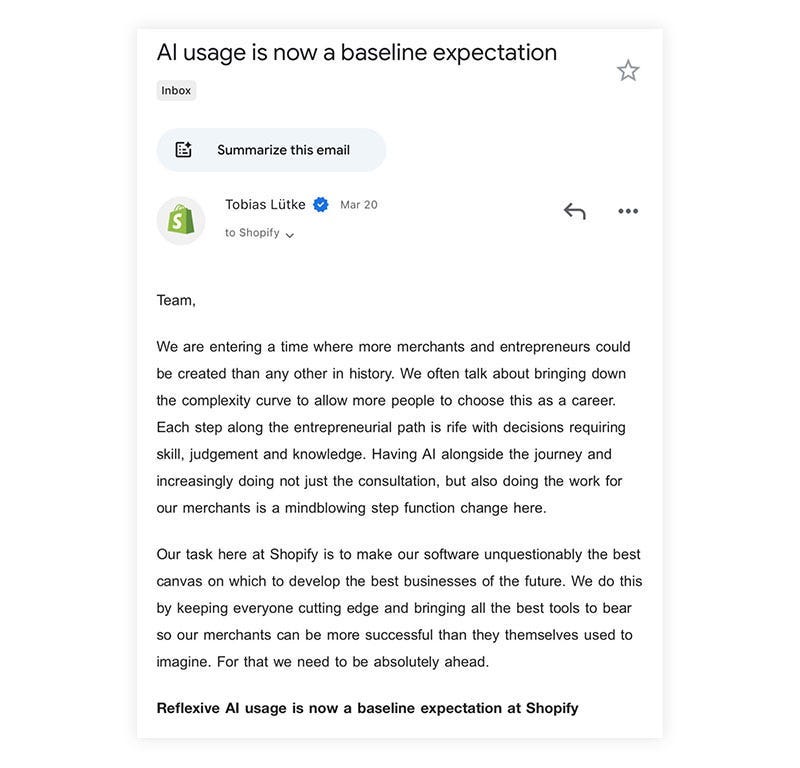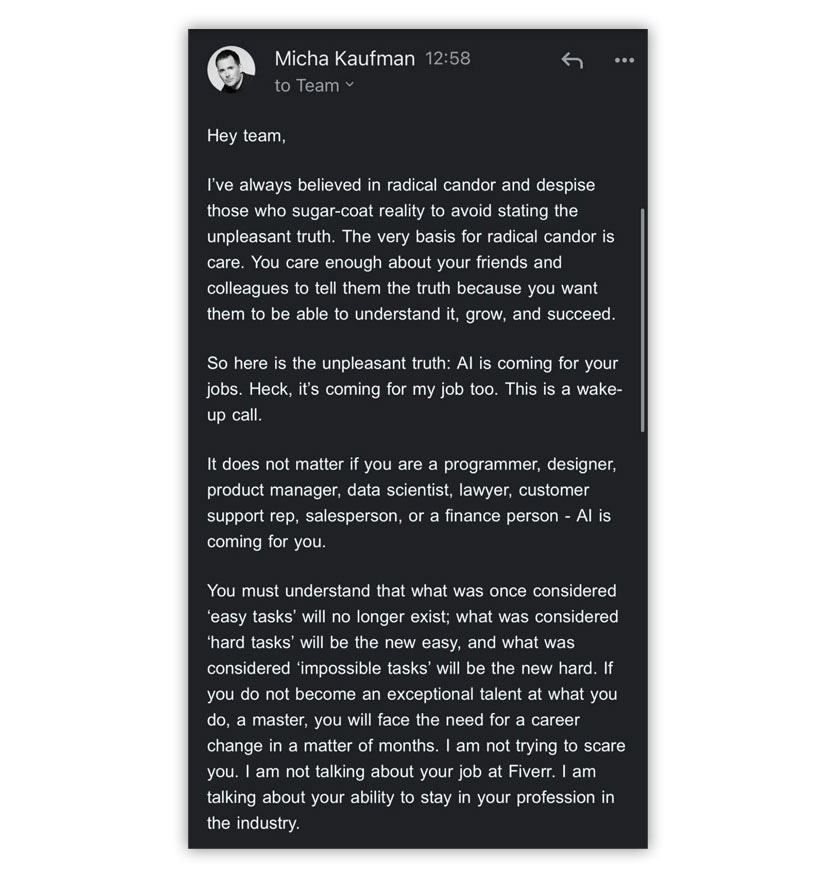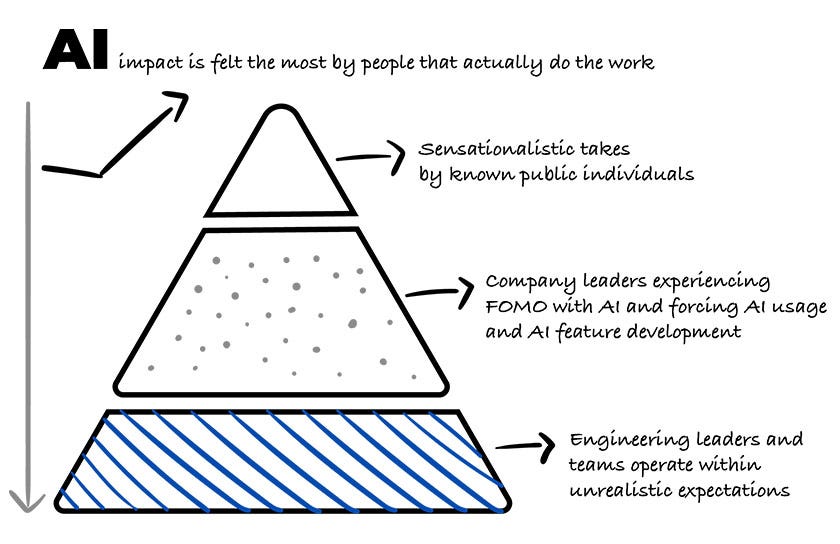How AI Is Impacting Engineering Leadership
Recap of the talk I did at the Tech Lead conference this week!
This week’s newsletter is sponsored by DX.
How to measure the impact of AI-assisted engineering?
Companies are no longer as limited by the number of engineers they can hire, but rather, the degree to which they can augment them with AI to gain leverage.
DX’s AI Measurement Framework offers a set of research-based metrics for measuring AI adoption and impact in your organization. Download the paper and start answering questions like:
Which AI tools are working?
How are they being used?
What’s actually driving value?
Thanks to DX for sponsoring this newsletter, let’s get back to this week’s thought!
Intro
Had a great time presenting at the online Tech Lead conference earlier this week. The topic I presented was (you guessed it), the title of today’s article: How AI Is Impacting Engineering Leadership.
I shared the two most impactful things I am seeing happening across the industry due to the effect of AI.
The insights shared are based on my view and also speaking with many engineers and engineering leaders across the industry. I also shared tips on what to do to be a successful engineering leader in 2025 and beyond.
In this article, I am sharing the recap of the talk, and you can also watch the recording of it below.
You Can Watch/Listen to the Talk Below
I’ll be doing a similar talk at the Tech Lead Conference in London as well. It will be on November 28. If you’ll be joining, I’d love to meet you there!
For everyone else who doesn’t have a ticket yet, you can get it via my link for 10% off.
Let’s get straight to the recap now.
Impact 1: 51% of Engineering Leaders View AI's Impact as Negative
This is quite an alarming data point from the LeadDev report, where they surveyed more than 600 engineering leaders. You can check my full breakdown on it in this article.
When I first saw this data, I immediately wondered: What is going on here? What’s happening? Why do we see that?
I asked many engineers and engineering leaders across the industry, both from Big Tech and Startups, and I came across some important findings, which will be shared next.
Engineering Teams Feeling Less Motivated Than 12 Months Ago
Before we get into the findings, an important thing to mention also from the report is that engineering teams these days are feeling less motivated than they were 12 months ago.
That's alarming as well. And that's also connected with engineering leaders believing that AI is impacting the industry negatively.
So, let’s go next into why 51% of engineering leaders believe AI is impacting the industry negatively + why engineering teams feel less motivated than they felt 12 months ago.
Sensationalistic Predictions About AI From Known Public Individuals are the #1 reason
It all starts with sensationalistic predictions regarding AI from known individuals. You have probably seen a lot of these across social media or different media platforms.
Example #1: Mark Zuckerberg saying that AI will replace mid-level engineers in 2025
Example #2: Anthropic’s CEO mentions AI could spike unemployment to 10 to 20% in the next 1 to 5 years, and believes that AI could wipe out half of all entry level white collar jobs.
Example #3: Amazon’s CEO Andy Jessy said AI will reduce its corporate workforce in the next few years.
So what do such sensational takes do? They are the reason that company leaders are experiencing FOMO when it comes to AI.
Company Leaders Experiencing FOMO When it Comes to AI
Example #1: Shopify’s CEO enforcing the use of AI with claims:
AI is improving productivity by up to 100x
Including AI usage as a KPI in the performance review
Demonstrating that you can’t do what is needed with AI before asking for more headcount
I shared my thoughts on this in detail in this article:
Example #2: Fiverr’s CEO telling everyone AI is coming for their jobs
Engineering Leaders and Teams Operate Within Unrealistic Expectations
So, company leaders experiencing FOMO regarding AI then trickles down to engineering leaders and their teams, needing to manage such unrealistic expectations.
Here are some of the unrealistic expectations I have heard:
Believing AI is a “Plug and Play” solution
Expecting AI to eliminate all manual work
Underestimating the cost and complexity of building internal LLMs
Assuming AI will just magically understand the whole context of the specific domain
Expecting AI to replace entire teams
Assuming AI will just work without failures
Thinking that there are no ethical, legal, and security risks
Assuming AI will exponentially increase the performance over time
This is the reason why Engineering Leaders perceive AI in a negative way, and also engineering teams are less motivated these days.
Here is the Full Visual Overview
The people who feel this the most are the ones who actually do the work.
It starts with sensationalistic takes, which are the reason why company leaders experience FOMO when it comes to AI, and then engineering leaders and their teams need to operate within unrealistic expectations.
So what to do?
I’ll give advice for both company leaders and engineering leaders next.


